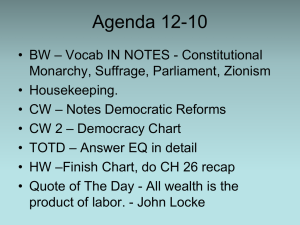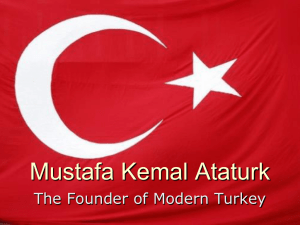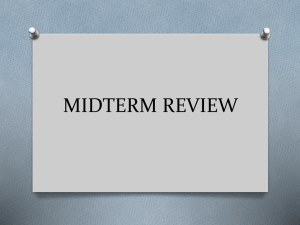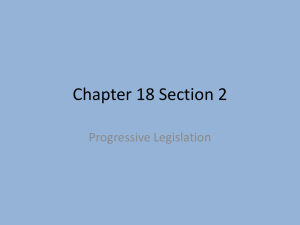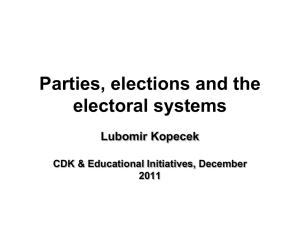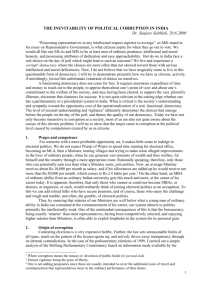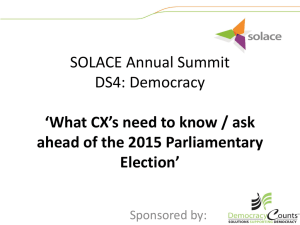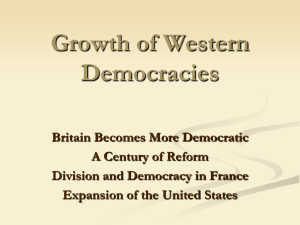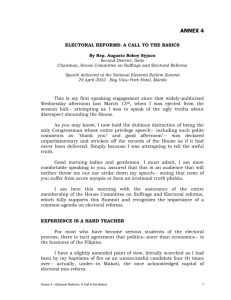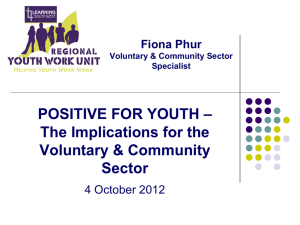THE CONSTITUENT ASSEMBLY and THE FRAMING OF INDIA`S
advertisement
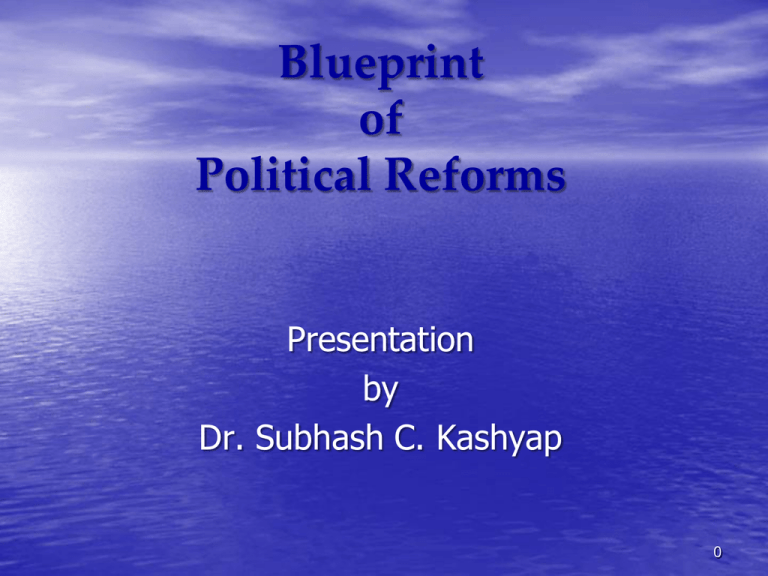
Blueprint of Political Reforms Presentation by Dr. Subhash C. Kashyap 0 State of The Nation • Nation Passing through most critical times • Need for citizens not to remain silent spectators of the ruin but to be vigilant and become active participants in the democratic process • Ensuring security, equality, human dignity and freedom from exploitation to all • Problems of all pervasive corruption, criminalisation, poverty, illiteracy, rising population, skyrocketing prices and utter callousness of the rulers • Tackling governance deficit, making administration and justice delivery system citizen-centric 1 Areas Needing Reforms • Electoral & Party Reforms • Assuring stability, good • clean corruption governance with accountability to the people Union-State Relations free, – Misuse of article 356 – 3 or 4 tier governance with maximum powers at the grassroots – Bottom-up instead of top-down model • Executive and judiciary – Reduction of delays – Elimination of Corruption • Making public administration – Transparent – Citizen-centric & People Friendly • Parliamentary Reforms 2 Electoral Reforms • Elections as the foundation of representative • • • • democracy Electoral System – The mother of many of our problems of corruption, criminalisation, black money, governance deficit Systemic & procedural Problems Electoral Reforms Agenda Political Party Reforms 3 Problems • Motivation for entry – not sacrifice and service • but getting rich quick Electoral system divisive – Casteism, communalism and vote bank politics • Lack of any role for the People in selection of • • candidates Erosion of Representational Legitimacy Cost of Elections Contd. 4 Contd. • Electoral Rolls • Influencing Voters – Money, Muscle and Mafia Power – Criminalisation • Independent Candidates – not serious, for illegitimate gains, dummies • Judicial Delays in Election Cases • Common Constituents – Panchayat to Parliament Members • Appointment of CEC & ECS 5 Reforms Agenda (1) Systemic • Selection of Candidates – public role through • • • • • • meetings or primaries Simultaneous Elections – Panchayats to Parliament Making voting Fundamental Duty Recall and Negative Vote - impractical Reforming FPTP System by adding run-off. Making Membership less lucrative Speedy justice in Election case – spl. Courts Contd. 6 (2) Process Related Reforms • Reduction of Election Costs – State funding in • • • • • • kind Foolproof Electoral Rolls – PRI to Parliament Video & other Surveillance Devices at Booths Disqualification of those with Criminal Charges Preventing Misuse of Official Machinery Movement for Citizenship Development & Voter Education Annual Declaration of Assets & Income by Members 7 Gandhian Model • • • • • Bottom-up approach Village-centric power at grassroots Direct election to local bodies only Indirect Elections to State Assemblies and Parliament Limits on Salaries and Perks of Members. 8 Political Party Reforms • Law for Political Parties • Regulation of no., registration and recognition of • • • parties Participation by Women and Youth Internal Party Democracy, Accountability and transparency Audited Accounts to be put in public domain 9 Conclusion • Necessary to restore to the institutions of • • democracy credibility, legitimacy and respect of the people. One word cause for the fall of Rome was “Corruption”. Public life is “to give” not |to take” Democracy and Freedom are tender plants, unless nursed with care they can wither away fast. 10 THANK YOU 11
